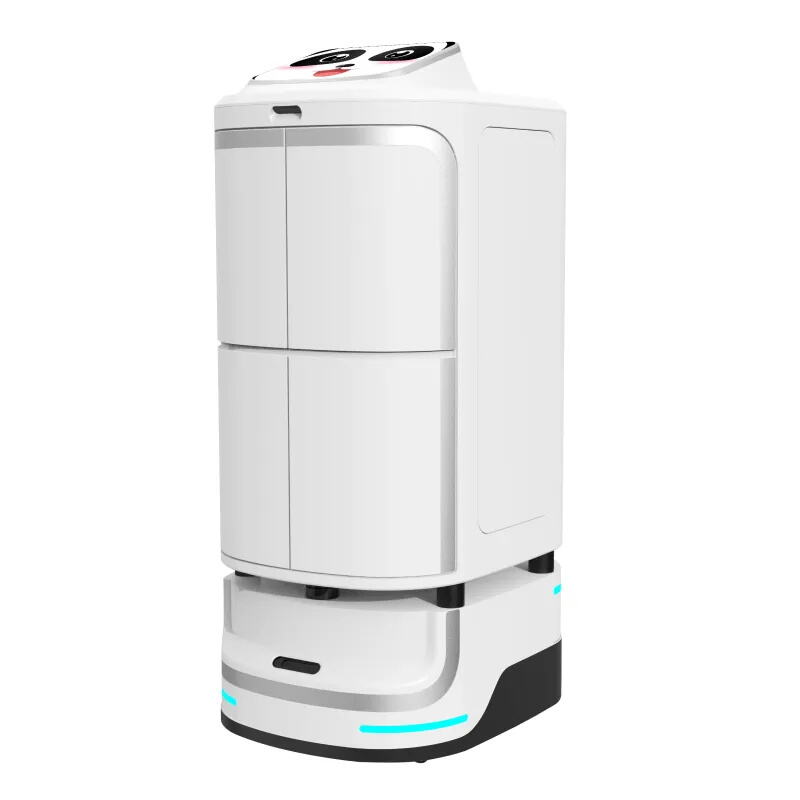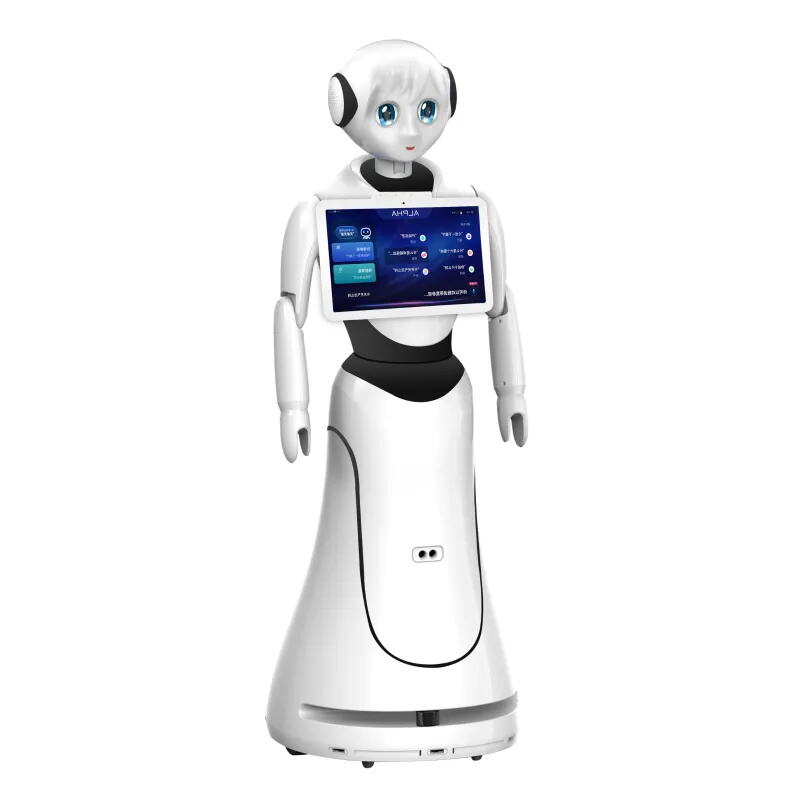The Revolutionary Impact of Robotics in Modern Healthcare
The healthcare industry is witnessing a transformative era as medical robots increasingly become integral to patient care delivery. These sophisticated machines are revolutionizing everything from surgical procedures to medication management, offering unprecedented precision and consistency in medical interventions. As healthcare facilities worldwide embrace robotic technology, we're seeing remarkable improvements in patient outcomes, reduced recovery times, and enhanced safety protocols.
Medical robots represent a convergence of cutting-edge engineering and healthcare expertise, designed to augment human capabilities rather than replace healthcare professionals. From minimally invasive surgeries to rehabilitation assistance, these advanced systems are reshaping our understanding of what's possible in medical care. The integration of artificial intelligence and machine learning further amplifies their potential, enabling more sophisticated and adaptive patient care solutions.
Advanced Applications of Robotic Technology in Healthcare
Surgical Precision and Innovation
In the realm of surgery, medical robots have demonstrated extraordinary capabilities in enhancing precision and control. Robotic surgical systems provide surgeons with enhanced dexterity, allowing them to perform complex procedures through tiny incisions with unprecedented accuracy. These systems offer 3D visualization, motion scaling, and tremor filtration, enabling surgeons to execute intricate movements that would be challenging or impossible with traditional techniques.
The advancement in robotic surgery has led to significantly reduced patient trauma, shorter hospital stays, and faster recovery periods. Surgeons can now perform procedures with greater confidence, knowing they have access to technology that enhances their natural abilities while maintaining complete control over the surgical process.
Patient Care and Monitoring Systems
Beyond the operating room, medical robots are revolutionizing patient care through automated monitoring systems. These sophisticated devices can continuously track vital signs, medication schedules, and patient movement patterns, providing healthcare staff with real-time data and alerts. This constant surveillance helps prevent adverse events and ensures rapid response to any changes in patient condition.
The implementation of robotic monitoring systems has significantly reduced the burden on nursing staff while improving the quality of patient care. These systems can operate 24/7 without fatigue, maintaining consistent attention to patient needs and potential safety concerns.

Enhancing Healthcare Delivery Through Automation
Medication Management and Distribution
The integration of medical robots in pharmacy operations has dramatically improved medication management accuracy and efficiency. Robotic systems can precisely measure, package, and distribute medications, significantly reducing the risk of human error in drug dispensing. These automated systems maintain detailed records of all transactions, ensuring accountability and enabling better inventory management.
Furthermore, robotic medication management systems can flag potential drug interactions and allergies, adding an extra layer of patient safety. The precision and reliability of these systems have proven invaluable in both hospital and outpatient settings, where medication errors can have serious consequences.
Rehabilitation and Physical Therapy
In rehabilitation settings, medical robots are providing consistent, personalized support to patients recovering from injuries or surgeries. These devices can assist with repetitive movement exercises, providing the exact amount of support needed while tracking patient progress with precise measurements. The ability to adjust resistance and movement patterns based on patient performance helps optimize recovery outcomes.
Robotic rehabilitation systems also offer engaging, interactive therapy sessions that can help maintain patient motivation throughout their recovery journey. The combination of physical assistance and progress monitoring helps therapists develop more effective treatment plans while ensuring patient safety during exercises.
Future Prospects and Technological Advancements
Integration of Artificial Intelligence
The future of medical robots lies in their increasing integration with artificial intelligence and machine learning capabilities. These advanced systems will be able to learn from experience, adapt to individual patient needs, and even predict potential health issues before they become critical. The combination of robotics and AI promises to create more intelligent, responsive healthcare solutions.
As AI technology continues to evolve, medical robots will become more autonomous while maintaining strict safety protocols and human oversight. This progression will enable healthcare facilities to provide more efficient, personalized care while maintaining the highest standards of patient safety.
Expanding Applications in Healthcare
The scope of medical robots continues to expand, with new applications being developed across various healthcare specialties. From microscopic robots designed for targeted drug delivery to assistive robots helping with patient mobility, the potential applications seem limitless. These innovations are opening new possibilities for treatment approaches and patient care strategies.
The healthcare industry can expect to see continued growth in robotic applications, with developments focusing on enhancing patient experiences while improving operational efficiency and safety standards. This expansion will likely lead to more accessible and effective healthcare solutions for a broader range of medical conditions.
Frequently Asked Questions
How safe are medical robots in healthcare settings?
Medical robots undergo rigorous testing and certification processes before implementation in healthcare settings. They are designed with multiple safety features and failsafes, and always operate under human supervision. Studies have shown that properly implemented robotic systems can actually enhance patient safety by reducing human error and providing consistent, precise care.
What training do healthcare professionals need to work with medical robots?
Healthcare professionals receive comprehensive training on specific robotic systems before operating them. This typically includes theoretical education, simulator training, and supervised practical experience. Ongoing training and certification programs ensure that staff maintain their expertise as technology evolves.
Will medical robots replace human healthcare workers?
Medical robots are designed to augment and support healthcare professionals, not replace them. They enhance the capabilities of human workers by handling routine tasks, providing precision in complex procedures, and offering consistent monitoring. The human element remains essential for decision-making, patient interaction, and overall care management.

